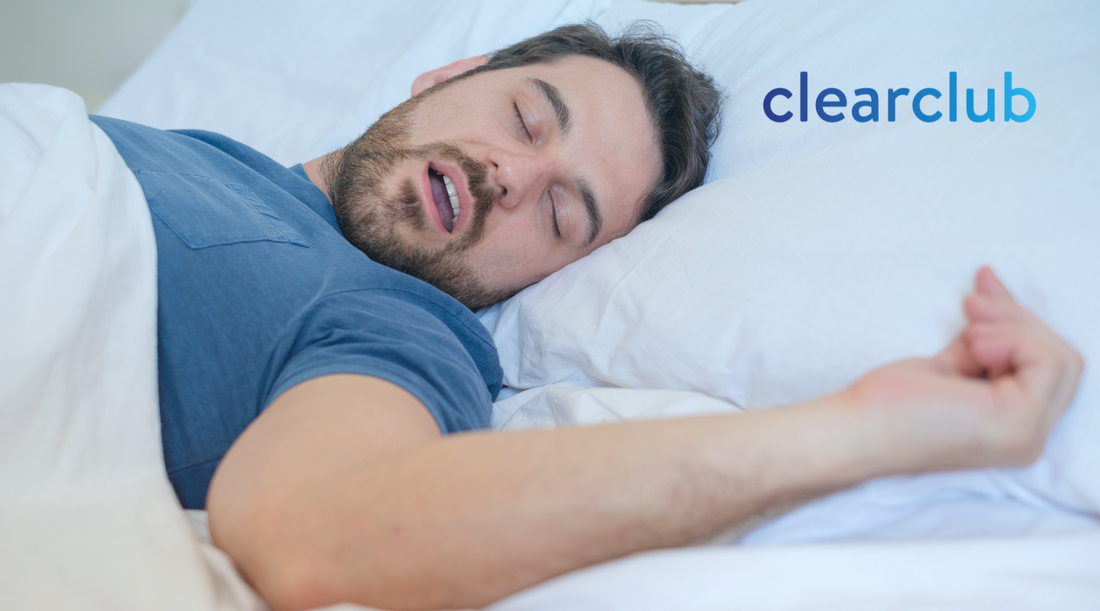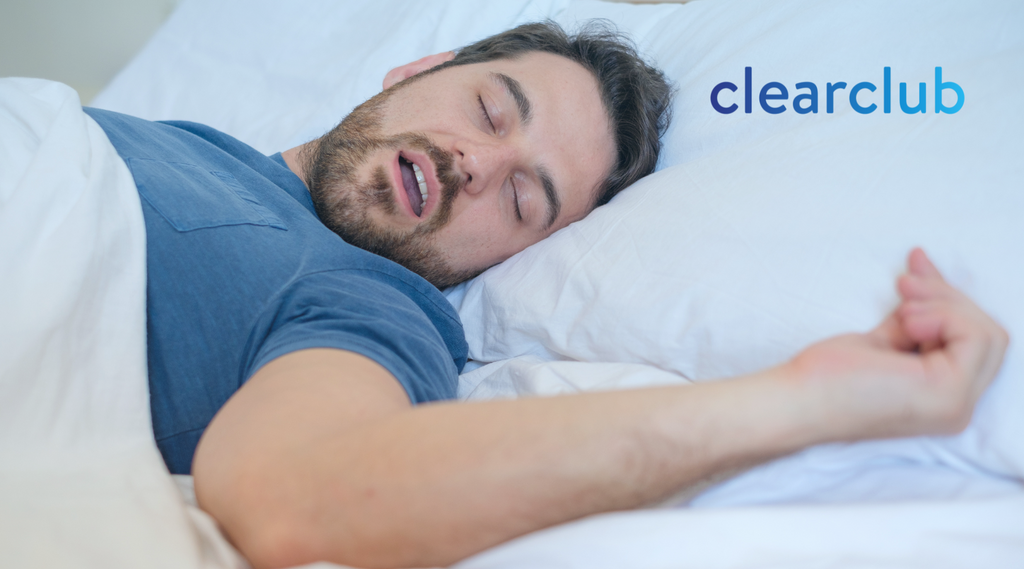
How a Mouth Guard Can Help Your Sleep Apnea
Share

Does snoring wake you or your sleeping partner at night? Have you ever been found gasping for air in the middle of the night? Do you frequently wake up with a headache? If you responded yes to any of these questions, you may have sleep apnea. Fortunately, sleep apnea can be treated.
Let’s discuss what sleep apnea is, how it affects your oral health, and how a mouth guard can help. You can then decide if a mouth guard is right for you.
What is sleep apnea
Sleep apnea, or obstructive sleep apnea (OSA), is a frequent and serious condition in which breathing repeatedly stops for brief periods of time during sleep. If you have OSA, the muscles in your tongue and throat constrict, blocking your airways and preventing you from breathing. As a result, they partially wake up to catch their breath. Snoring, restless sleep and repeated nighttime wakeups are all symptoms of sleep apnea. People with sleep apnea may be constantly exhausted during the day because they never get enough rest.
Sleep apnea can cause heart disease, high blood pressure, stroke, and even death. Due to insufficient sleep at night, people with this condition are at a higher risk of work and driving-related accidents. According to the National Foundation, people with severe apnea can wake up more than 30 times every hour while trying to sleep. Untreated or undiagnosed sleep apnea has an impact to the the quality of your sleep and your overall health.
The risk of having sleep apnea is higher if you:
- Are older
- Are carrying excess weight
- Are a diabetic
- Have hypertension
- Have nasal congestion at night
- Have narrow sinuses or obstructed airways
- Use tobacco or cigarettes, alcohol sedatives, and tranquilizers
- Are a man
- Have a family history of sleep apnea
Sleep apnea and bruxism
Sleep apnea can also cause jaw pain if you clench your teeth while sleeping. Although sleep apnea and bruxism are different conditions, the National Sleep Foundation reports that people with sleep apnea are more likely to clench their jaw. Researchers believe that sleep bruxism affects approximately one-quarter of all patients with sleep apnea. Though it’s uncertain why there is any connection or correlation between the two, it has been discovered that many persons with OSA are also prone to nighttime teeth grinding.
Mouth guards for sleep apnea
There is evidence that mouth guards can successfully treat some mild to moderate cases of sleep apnea, according to the American Dental Association. Aside from treating sleep apnea, a custom mouth guard also serves as a night guard to avoid grinding.
There are two different types of mouth devices for treatment of sleep apnea:
- Mandibular Advancement Device (MAD). The most commonly used oral device for treating sleep apnea is mandibular advancement device, which resembles a sports mouth guard. The devices are designed to fit over the upper and lower arches and have metal hinges that pull the lower jaw forward. The tongue is brought forward in this position, preventing the tongue from blocking the throat and keeping the airway open during sleep.
- Tongue Retaining Device. Less commonly used than MAD, this device grabs the tongue and keeps it from slipping back into the throat, which is effective for people who sleep on their backs or stomachs. It helps improve sleep and lessen the frequency and loudness of snoring of those with mild to moderate sleep apnea. A tongue retaining device is a splint that holds your tongue in place while you sleep, providing a simple yet effective way of ensuring proper airway throughout the night. These devices are small enough to carry around while traveling and are generally easy to use.
For patients suffering from both sleep apnea and bruxism, a custom dental appliance is the best treatment option. It really does offer the best of both worlds. Your choice of mouth guard mostly depends on your comfortability. Mouth guards that are not properly fitted may cause jaw problems or tooth movement.
Conclusion
Sleep is vital for our physical and meal health. It allows us to feel energetic, relaxed and positive. Even with sleep apnea, this kind of rest is still possible. A mouthguard may be highly beneficial if you have minor sleep apnea or if your sleep apnea only happens when you sleep on your back. Custom mouthguards might be the right solution to getting the comfortable and peaceful sleep you need. If you are unsure whether you have sleep apnea and are experiencing symptoms such as snoring, insomnia or dry mouth, don’t hesitate to get yourself checked. It’s best to get your sleep apnea treated as soon as possible to ensure your oral protection and overall health and wellness.
